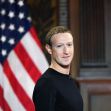Comedian, fighter, and podcaster Joe Rogan is facing increased scrutiny over allegations of COVID-19 vaccine misinformation on his wildly popular podcast, the Joe Rogan Experience.
Rogan’s podcast has been streaming on Spotify since 2020 after he entered into a licensing deal with the platform for a reported $100 million. His podcast remains to be the platform’s most listened to podcast with 11 million listeners tuning in for each episode.
Rogan has been no stranger to controversy. The latest headlines emerged after a group of medical professionals wrote an open letter to Spotify detailing concerns of COVID-19 misinformation on the podcaster’s episodes. The group accused Rogan’s podcast of spreading baseless conspiracy theories related to the pandemic. They called on the streaming service to “establish a clear and public policy to moderate misinformation on its platform.”
Following the open letter, rock star Neil Young doubled down on the criticism and accused him of espousing COVID-19 misinformation on his episodes as well. As a result, Young gave the streaming service an ultimatum, either remove Rogan from the platform or Young would remove his music. Spotify ultimately chose to keep Rogan on, and Young’s discography was removed from the streaming service.
Other artists have since called on Spotify to remove their music as well in support of Young. More recently, singer India Arie has called for her music to be removed after a video surfaced late last week showing the podcaster in a video compilation where he used the ‘N word’ over a dozen times. Arie shared her frustration with Spotify's revenue structure detailing, "They take this money that's built from streaming, and they pay this guy $100 million, but they pay us like .003% of a penny," Arie shared. "I don't want to generate money that pays that."
From a numbers perspective, it’s easy to see why the platform has chosen to keep ties with the influential podcaster. With millions of listeners each month, an end to its most lucrative podcaster could bring with it a ripple effect of other artists leaving the platform.
The controversy has also stirred up some well-intentioned questions surrounding censorship. Rogan, who is known to have hours-long conversations with influential individuals from all parts of the political spectrum, has insisted that his podcast is meant to encourage dialogue, not spread misinformation. Rogan explained in a video post, “I’m not trying to promote misinformation. I’m not trying to be controversial,” he insisted. “I’ve never tried to do anything with this podcast other than just talk to people and have interesting conversations.”
Countless supporters of Rogan came to his defense last week. Supporters including conservative media host Ben Shapiro and comedian Russel Peters hint at the repercussions of censorship on viewpoints that differ from the mainstream. Shapiro detailed in a tweet, “Nobody targeting Joe Rogan right now gives two damns about anything he's said in the past. This is all just an opportunity for activists to destroy a guy who doesn't carry water for those with institutional power, and whose audience dwarfs their own. It is that simple.”
Spotify CEO Daniel Ek has shared that the streaming service would continue defending Rogan, despite how controversial his podcasts may be.
"While I strongly condemn what Joe has said and I agree with his decision to remove past episodes from our platform, I realize some will want more," Ek shared in his letter. "And I want to make one point very clear – I do not believe that silencing Joe is the answer."
Ek also shared his support against efforts to censor artists on the platform. "We should have clear lines around content and take action when they are crossed, but canceling voices is a slippery slope. Looking at the issue more broadly, it's critical thinking and open debate that powers real and necessary progress."






